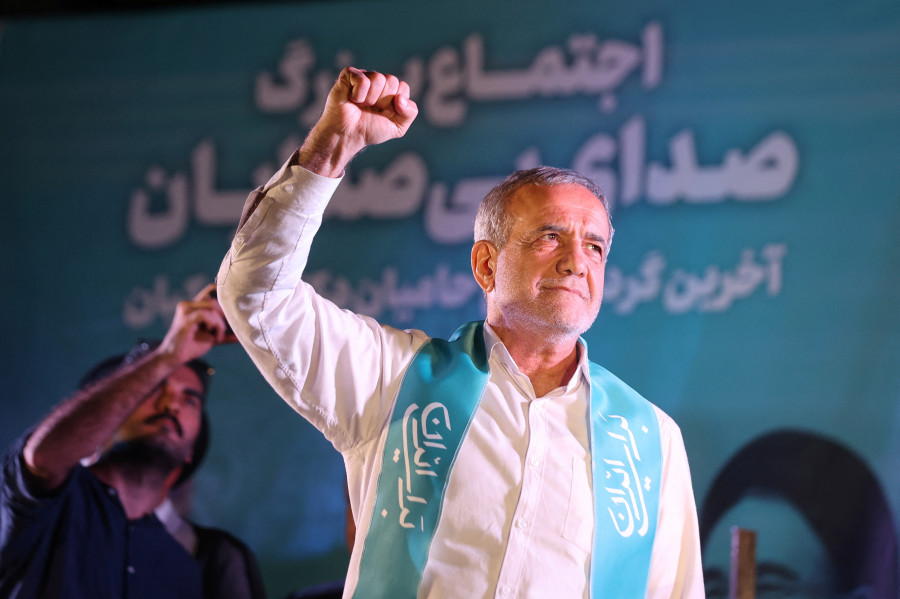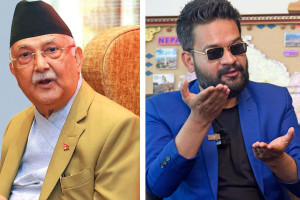Columns
Quest for a pragmatic foreign policy
Iran’s foreign policy remains caught between national security and hardline calls for aggression against Israel.
Anant Mishra & Christian Kaunert
In the last week of August, the world witnessed confirmation of Sayyid Abbas Araghchi (a veteran diplomat and much-revered figure within the Iranian political circle) by the parliament as the new foreign minister upon recommendation from the newly-elected President Masoud Pezeshkian. Revered as a champion of foreign policy, Abbas Araghchi started his career at the Ministry of Foreign Affairs, joining initially as a political analyst and then rising through the ranks, making his mark in the politico-diplomatic corridors of Tehran. Being one of the top negotiators for the Joint Comprehensive Plan of Action (JCPOA) in 2015, he received much traction in the West, forcing some European political leadership to open doors of engagement with Tehran.
Charting a new course
After taking the oath of Presidency, Masoud Pezeshkian openly advocated the need to ‘smoothen’ Tehran’s relations with the West, hinting towards altering Tehran’s traditional foreign policy. His resolve towards charting a new course for Tehran was reflected in his decision to invite experts, such as Mohammad Javad Zarif (who joined the Pezeshkian government as the Vice President for Strategic Affairs), Mohammad Eslami (joining as the head of Iran's civilian nuclear program), Mohammad Atabak (Pezeshkian’s new Minister of Industry, Mines and Trade) and Sayyid Abbas Araghchi (as the new Foreign Minister), among others firmly believing in his reformist agenda and also equivocally advocating on improvement of Tehran’s diplomatic engagement with the West. Though Araghchi, like all nominated members of the Pezeshkian’s cabinet, “reaffirmed his loyalty to the revolutionary ideas and the Ayatollah himself,” the composition of Pezeshkian’s government reflected his resolve to charter a new course for Tehran.
Upon confirmation as the top diplomat for Tehran, Foreign Minister Araghchi’s initial remarks reflected no fundamental change in Tehran’s foreign policy; instead, the minister reiterated his new government’s resolve to put Tehran’s national interest as the primary in all foreign policy engagements. Although his statements were devoid of necessary details, he reaffirmed Tehran’s commitment to strengthen strategic ties with Moscow and Beijing with a renewed focus on Tehran’s conventional strategy of ‘proxy warfare’. Considering the recent Israeli attack, it remains unclear if the foreign minister still aims to expand Tehran’s partnership with sympathetic nations in Latin America and Africa. However, some experts argue on increasing voices towards greater economic cooperation within nations sympathetic to the Palestinian plight, with an intent to maximise support against Israeli offensives in Gaza and Lebanon.
That said, it also remains unclear if the foreign minister has engaged/is willing to engage with political leaders from the European Union (EU), taking the benefit of anti-Israel sentiments flourishing there. According to one journalist, the EU intends to tread cautiously with Iran, especially with many of its member states raising serious concerns towards its nuclear programme and sustained support to Hamas/Hezbollah and the Bashar al-Assad regime in Syria, to name a few. The central point of contention within the EU is Tehran’s military/strategic cooperation with Moscow, which many believe continues to reinforce the latter's war machine against Ukraine. From the aspects of policy, the West and Tehran stand on opposite fronts today, not only in Gaza or Lebanon but in Syria, Iraq and Yemen as well. Undoubtedly, President Pezeshkian’s advocacy for greater engagement with the West remains one of the toughest challenges in Tehran’s foreign policy, and even slight progress can define his presidency.
National security & hardline ideology
Besides being hopeful for a positive engagement with the West, Pezeshkian’s new government appears to face serious challenges within its immediate neighbourhood. It remains unclear how Pezeshkian will mend Tehran’s ties with Turkey and Azerbaijan, which remains a thorn in its backyard. Azerbaijan’s victory over Armenia in 2020 paved the way for solidifying its relations with Turkey and Israel, which sent ripples in Tehran’s politico-military corridors. This broke ties between Baku and Tehran, leaving the latter’s territorial boundaries unsecured. Although President Pezeshkian appears to have softened his approach towards Baku to re-engage with its immediate neighbour, some experts point towards a ‘discontent’ Tehran over Baku’s closeness with Jerusalem, signifying a more crucial dip in their relations post-Israeli strike on Iran.
Further, any effort by President Pezeshkian to engage with the West could alienate the Iranian Revolutionary Guards Corps (IRGC), even if his initiatives intend to relieve significant economic stress on Iran—uniting hardliners over his sympathetic stand towards the EU while calling for more aggressive measures against Israel. It remains unclear if President Pezeshkian will budge under pressure. Still, reflecting Tehran’s reluctance to reciprocate aggressively against Israel tactically, Pezeshkian’s pro-EU policy appears to have achieved silent victories.
The ongoing Israeli offensives in Gaza and the Israeli Defence Forces’ slow but sustained military operation in southern Lebanon continue to challenge Tehran’s foreign policy. This has compelled Tehran to make strategic decisions with the potency to diminish any/all hopes for engagement with the West and potentially engulf the region in future. Thus, it would not be incorrect to state that Pezeshkian’s foreign policy appears to hang in the balance—between Tehran’s principles of national security and hardline voices calling for greater aggression against Israeli offensives in Gaza and southern Lebanon. This potentially forces him to mirror elements of foreign policy from his predecessor, the late President Sayyid Ebrahim Raisi and to forfeit any hopes over his previously envisioned and ambitious pro-West approach, albeit temporarily.




 9.12°C Kathmandu
9.12°C Kathmandu
















